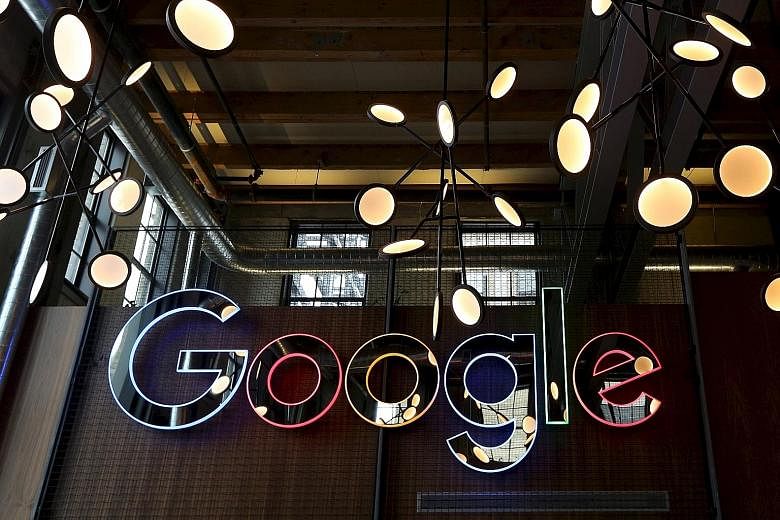SAN FRANCISCO • Google regularly tussles with regulators over taxes, privacy and competition, but the latest battle, which came to a head on Wednesday in Europe, may be the biggest challenge yet to the company's mobile strategy.
Regulators are going after Android, the key to Google's shift from a company serving information and adverts on personal computers to one that beams this content to billions of phones, tablets and smart-home devices.
If charges stick, the company will find it harder to grow advertising revenue, control costs and make money from mobile gadgets in Europe.
"Android is an extension of Google and its touch-point to virtually every non-iPhone user in the world," said Mr James Cakmak, an analyst at Monness Crespi Hardt & Co. "Anything to potentially threaten that is a risk."
Europe said on Wednesday that Google's main strategies for making money from Android are anti-competitive. At issue are contracts requiring handset makers and wireless network operators to pre-load Google services, like Search and its Chrome browser, on Android phones that use Google's Play app store. Google also offers financial incentives for Android partners not to install other search engines on their devices, the regulator said. Both tactics create more mobile users for Google by ensuring that when someone turns on a new Android device, Google services are prominent.
Seven Google products - Search, Android, Maps, Chrome, YouTube, Google Play and Gmail - have a billion monthly active users and are growing quickly on mobile, the company's chief executive officer Sundar Pichai said earlier this year.
Six of these are available as mobile apps and four were mandatory pre-loads for Android phone maker HTC, along with Google Play's predecessor, according to a contract unearthed in 2014.
The European Commission wants phone makers to be able to choose which apps they install on their Android devices, instead of being limited by Google's all-or-nothing deal.
"It is one of my priorities to allow consumers to enjoy a wide range of innovative platforms, products and services online," Ms Margrethe Vestager, Europe's competition chief, said on Wednesday.
The objections were anticipated by investors, and it will probably take years for any fine or changes to be imposed, should the commission not drop its charges or settle. Shares of Google parent Alphabet fell less than 1 per cent on Wednesday. But the announcement highlighted the regulatory risk the company faces in Europe.
Longer term, Europe's probes "could have a material impact, if they require a material change in Google's business practices", Mr Mark Mahaney, an analyst with RBC Capital Markets, said in a note.
Google, which was scheduled to report results yesterday, said its Android contracts are voluntary. The popularity of other companies' apps like Spotify and WhatsApp on Android phones shows how easily people can access competing services through the operating system, it added.
Last year, Europe said Google abused its dominance in general search to favour its shopping service over rival offerings.
Any changes to Android contracts could make it easier for rivals to get their software and apps into the hands of Android phone users. That, in turn, may limit Google's mobile user growth.
BLOOMBERG

